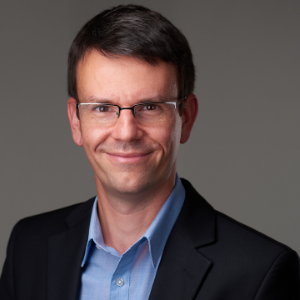“Inspiration workshop, where professional co-thinking is typical to support personal research goals”
Interview with our doctoral student Máté Farkas-Kis In our next series of articles, we present interviews in which we asked doctoral students and alumni why it is worth participating in the programs offered by Corvinus. Our current interviewee is Máté Farkas-Kis, a graduate applied mathematician who is pursuing his academic career as a PhD student at Corvinus University.

What can a doctoral student get from the CDI program?
High quality professional training, in cooperation with authentic professionals, as well as international experience and a supportive professional environment.
Who would recommend the program to?
Those who want to deepen their professional knowledge and feel there is still room for improvement. It would also support the training of future generation leaders with its market experience.
What kind of relationship can be established between a student and a supervisor?
In the case of a lucky choice, it is based on mutual respect, open and honest, which allows for free thinking and complex analysis of problems.
What does practice-oriented education mean? What are your experiences with this?
The essence of practice-oriented education is that, in addition to getting to know the research methodology and related deeper professional background, their processing and understanding is realized through its implementation on our own research topic. This is extremely useful because both the outcome requirements and the study phase already produce results that are useful and usable for our doctoral research.
What studies did you do before your Corvinus doctoral program?
In terms of my education, I am a graduate applied mathematician with a degree in finance mathematics. I supplemented this during my professional career with an MBA degree with a specialization in “Digital economy” and an ITIL CSI qualification.
In my case, my professional background is also important, as the nearly 20 years I have spent in the market are all part of my decision and the way I approach research and education, my academic career.
Why did you choose Corvinus to complete your doctoral studies?
I spent the last 10 years of my professional career before entering the doctoral program in the field of economics and finance. When considering the options for where to go next, I was guided by two aspects that coincided: selecting one of the best professional workshops in Hungary, and mentoring one of the best professionals in my field of research.
What personal success and additional opportunities do you expect from the Corvinus doctoral program?
My field of research I think is important and forward-looking. At university, I became involved in scientific communication from the first minute (e.g. Research Forum, Researchers ’Night). At every event when I have the opportunity, I am there and I perform. I am confident that the importance of my subject area and my university background will also help it to be widely publicized and recognized and recognized internationally.
In what field, on what topic do you research and publish?
Behavioral science and decision theory, but especially the relationship between mathematical competencies and decision-making skills, is my field.
For what purposes did you come to the doctoral program?
My goal is to be enriched with my professional experience and to be successful in my field of research, thus transforming my attitude to mathematical thinking. The PhD program is not just about exposing me to “Dr”. I would like to continue my career in academic fileld after graduating because my research topic is not for a four-year program, much more.
Who inspires you in your field of research?
My family, my supervisor, my university colleagues, students, and my past experiences. They all contribute to my progress with great force to go on this career. Because what I do and the way I do it constantly gets positive feedback from their side as well.
What has the PhD program given so far?
It has opened up a new world and helps me to understand my own work more deeply. I could compare it to when someone is a hobby carpenter as opposed to a professional craftsman learning a profession. Who makes it just for hobby can work with wood very nicely, too. He read about it, practiced it, understands, it. But if you graduate from school, this hobby you used to make out of love is complemented by a very conscious and professional professional background. This professional background is what can only be experienced here and only if one is included in the program. It doesn’t go by itself, it is not enough to read books.
What is your best Corvinus experience?
My best experience is that one of my lectures, Economist Online, brought out a standalone article. My supervisor called me to congratulate me and I didn’t know why because I had no idea how to make such an article. I was very surprised and touched that there was a participant who wanted to publish about this. The writing itself became very good, very professionally conveyed what happened at the lecture, and it illustrates well one of the cornerstones of my research.
If you had to describe your training experience in a single key sentence, how would it sound?
An inspiration workshop where personal research goals are supported by professional co-thinking and a supportive medium, not only at the university but also at the international community level.